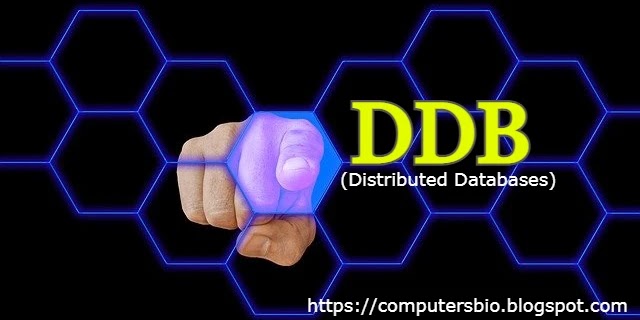Advantages and Disadvantages of Distributed Databases
Benefits of distributed database :-
1. Improved Reliability -
Replicating the data to most locations increases the reliability of the whole system.
2. Share ability and Local Autonomy -
Local users can control their data,on the local system handle it and get good capacity. Whereas the Global Database For the centrally defined information Administrator is responsible. Modified Availability If any one location goes wrong, the other locations can get their own. If the die is replicated to another location, then the error in one position ignored can be.
3. Improved performance -
Local DI stays where it is most in demand, this will speed up access and require less processor time, IVO devices, etc., as compared to a single system.
4. Structure of-
5. Economics -
It is not true in today's date that the centralization process is cheaper than small individual units , which are added at the time of need. Local access transmission central and peripheral devices also reduces the traffic between them.
6. Modular Growth -
Well designed distributed systems are easy to scale.without the others New sites can be added disturbing work of. As the central system grows, both hardware and software may need to be changed.
Disadvantages of distributed database :-
1. Complexity -
By hiding the nature of the distribution and trying to provide better performance, reliability and availability, a DDBMS becomes a very complex system. Particularly when integration of heterogeneous local systems is required.
2. Cost -
The cost of acquisition and care is high due to complexity and the costs for transmission and local arrangements keep on increasing.
3. Security -
data can be easily controlled by centralization; But in many places, data replication and unsecured networks can create additional hazards.
4. Integrity -
Defining local and global data by the law of validity and stability may some process incur cost and transmission cost. This problem can be complex which can impact on the job.
5. Decrease in -
Standard communication and data access protocol is a related new thing. Therea central system is also a lack of tools and methods to convert into a distributed system.
6. Lack of Experience -
Central systems have been replaced by distributed systems in general use not yet been, so there is still a lack of experience.
7. DDB design more complex -
In addition to simple problems, DDB design should also find solutions to problems that are associated with the distribution and placement of data. Such problems are called fragmentation, allocation (of fragments) and data replication.
Distributed databases can face a variety of problems. Work in networks can be slow; Therefore, the number and quantity of messages exchanged between multiple locations should be minimized. The process of answering questions may include multiple options, the execution time of orders of magnitudes which depends on the. When some processes fail, many related works are also required in their recovery so that the intrinsic stability is maintained.
Distributed databases are becoming a core element of IT in most business organizations as information is spread across corporate sites across multiple networks. Distributed systems have many advantages, disadvantages and problems. These are all based on heterogeneous models. When compared to central databases, distributed systems such as concurrency and recovery appear to be very complex when compared to central databases, due to issues arising from homogeneity and data allocation, and due to policies to solve old problems.
Also Read :
- What is FoxPro in Computer?
- What is the reliability of distributed systems?
- What is new in Window XP?
- What are the basic Internet terminologies?
- What are services provided by Internet?
- What is Charles Babbage Analytical Engine?
- What is distributed system explain?








1 Comments
Good information sir ji
ReplyDeletePlease do not enter any spam link in the comment box.